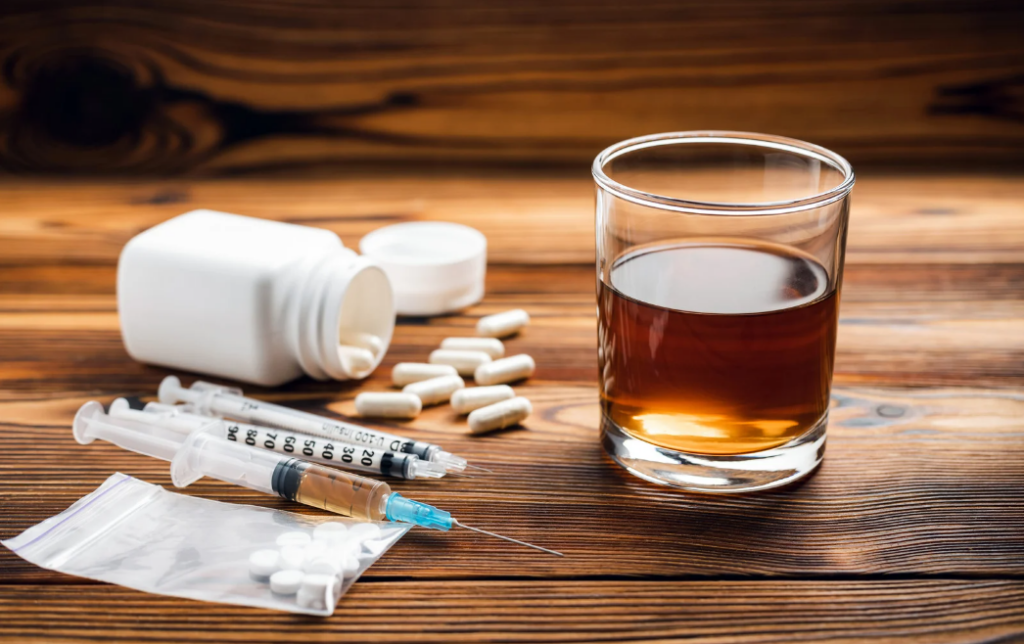Nobody who starts using substances or alcohol has the intention of becoming dependent, yet this condition now affects over 21 million Americans.
Alcohol and Substance Use Disorder is a chronic illness, just like diabetes or asthma. However, it can be managed and treated, and recovery is within reach.
Substance Use Disorder is complex and multifaceted, and understanding its nature is paramount in addressing its widespread impact on physical health, mental well-being, and societal dynamics.
What is Substance Use Disorder?
Substance Use Disorder refers to a state in which an individual experiences both physical and psychological reliance on a substance, leading to compulsive substance-seeking behavior despite harmful consequences.
One aspect of this condition is tolerance, which means that as time goes by, people need more of the substance to get the same effects. They experience withdrawal symptoms when they try to stop using it. This makes it even harder for them to stop this behavior.
Substance Use Disorder withdrawal symptoms include:
Early Symptoms:
- Fatigue
- Agitation
- Anxiety
- Muscle aches
- Increased tearing
- Insomnia
- Runny nose
- Sweating
- Yawning
Late Symptoms:
- Abdominal cramping
- Diarrhea
- Slowed movements
- Dilated pupils
- Goosebumps
- Depression
- Nausea
- Vomiting
Losing control over substance use is a common feature of chemical dependence, even when individuals understand the damage it causes to their health, relationships, and overall quality of life. It’s not just a passing problem; it’s a complicated and enduring condition that influences individuals, families, and society as a whole.
Signs of Substance Use Disorder
Warning signs of chemical dependence can manifest in various ways, often including:
- Increased tolerance, requiring larger doses of the substance to achieve the desired effects.
- Withdrawal symptoms when attempting to reduce or stop substance use.
- Unsuccessful attempts to cut down or control substance use.
- Spending a significant amount of time obtaining, using, or recovering from the effects of the substance.
- Continuing to use substances despite knowing the harm they cause to physical health, mental well-being, relationships, or other areas of life.
- Neglecting responsibilities at work, school, or home due to substance use.
- Changes in behavior, mood swings, or noticeable shifts in personality.
- Engaging in risky behaviors while under the influence of the substance of choice.
- Experiencing cravings or strong urges to use substances.
- Withdrawal from social activities or previously enjoyed hobbies in favor of substance use.

Why Do Some People Get Addicted to Substances and Others Don't?
There is no single factor that predicts whether or not a person becomes addicted to a substance. Genetic, environmental, and developmental factors can play a role.
Genetic Factors
Genetics accounts for about 50% of an individual’s risk for dependency. A person’s biological makeup dictates how it reacts to substance. Other people hate it the first time they try it while others immediately feel compelled to try it again. Other essential factors include ethnicity, gender, and the presence of mental health issues.
Underlying mental health problems like anxiety, depression, or ADHD can make people more susceptible to chemical dependence. They typically use substance in an attempt to feel better and numb the pain, ultimately leading to dependency.
Environmental Factors
An individual is more inclined to substance use if environmental influences drive the behavior. For example, peer pressure; stress; trouble at home, in school, or at work; and history of sexual or physical abuse could be examples of external variables that could influence one’s choices and behavior.
Developmental Factors
Critical developmental stages also affect one’s inclination to chemical dependency. Although taking substances at any age can potentially lead to substance abuse and dependence, the earlier a person begins taking substances, the more likely it will progress to substance use disorder. Teens are often adversely affected because the areas in their brain that control judgment, decision-making, and self-control are still developing. They are then more prone to risky behaviors including taking substances.

Begin the Journey to Long-term Sobriety Today!
If you or a loved one is grappling with addiction, take the first step towards recovery today. Positive Sobriety Institute in Chicago, IL and our compassionate team of professionals understand the challenges you’re facing. We are committed to providing you with the personalized care and support you need to achieve long-term sobriety.
Help yourself or your loved one break free from Substance Use Disorder. Request a free consultation today!


